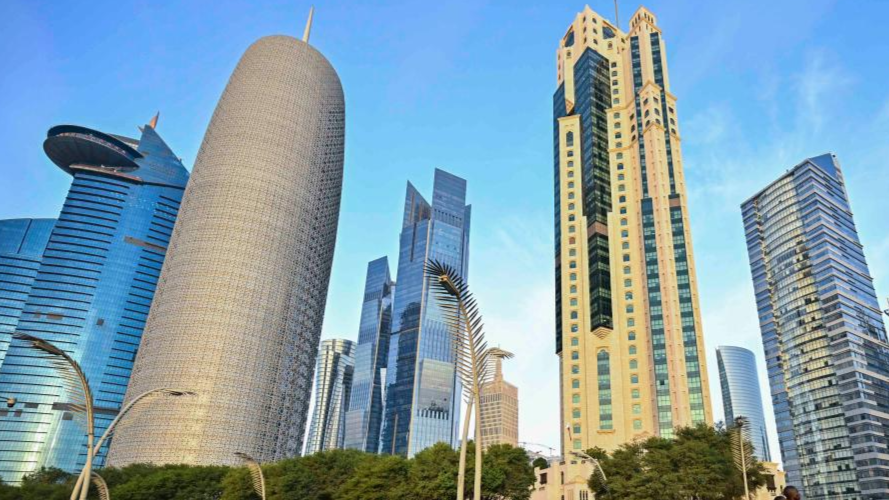
Hong Kong is set to gain from the Middle East’s industrial transformation as global trade dynamics shift, as the city positions itself as a gateway for Chinese mainland firms to access untapped regional markets.
Irina Fan Yuen-yee, director of research at the Hong Kong Trade Development Council, made the remarks at a media sharing session ahead of a Middle East visit by a high-level delegation led by Chief Executive John Lee Ka-chiu.
Fan underscored the deepening economic ties between Hong Kong and Gulf Cooperation Council members Qatar and Kuwait — which the delegation is set to visit — as both countries are actively diversifying their respective economies beyond oil and gas.
As intensifying geopolitical tensions caused by factors such as changing US tariff policies and the Russia-Ukraine crisis reshape global trade dynamics, Middle East countries are pivoting trade focus to the Asian market instead of their traditional focus on Europe and the US, Fan said.
ALSO READ: CE to lead local, mainland entrepreneurs to visit Gulf states
“At this moment, Hong Kong’s role as a gateway for mainland firms expanding into the Middle East is becoming increasingly vital,” she said.
According to a survey by the HKTDC in August, which polled 457 companies based in Nanjing, Jiangsu province, more than 90 percent of enterprises plan to go global in the next one to three years, and 77 percent of them look to Hong Kong to secure global success. A similar survey done in 2023 for companies based in the Guangdong-Hong Kong-Macao Greater Bay Area showed similar outcomes.
Fan also said that as smaller mainland firms join the “going global” trend following larger corporations’ successes, demand for Hong Kong’s cross-border business support services will intensify.
“Just as Hong Kong became a gateway to ASEAN (the Association of Southeast Asian Nations), we can replicate this success in the Middle East,” she said.
Introducing development opportunities in Qatar, Edmund Lo Chung-hei, economist of the Asian and Emerging Markets Research Team at the HKTDC, said the country has made notable progress in economic diversification, with nonoil GDP rising from 53.8 percent in the early 2000s to 67 percent recently.
Lo cited Qatar’s National Development Strategy 2030, which prioritizes expanding manufacturing, digitalization, and livability to attract foreign talent.
ALSO READ: HKMA: Short-term drop in HKD rate may help businesses, borrowers
In enhancing local residents’ quality of life and streamlining public services, digital transformation has become a key driver, and areas such as healthcare, government services, and smart city development require robust digital solutions, creating significant opportunities for Hong Kong to contribute its expertise, he said.
Lo also underscored the city’s unique financial advantages. “As China is the primary trading partner for most GCC nations, and the HKSAR is the world’s largest offshore renminbi hub, we are ideally positioned to facilitate growing Middle East-Asia commerce,” he said. “Wider yuan adoption in regional trade would further cement our status as a global financial center — it’s our natural competitive edge.”
Meanwhile, Kuwait is undergoing similar economic diversification, with its non-oil sectors demonstrating consistent growth.
HKTDC economist Henry Cheung Ka-hei said that under the Kuwait National Development Plan 2020-25, the country aims to boost private-sector involvement to 40 percent of GDP by 2035, with major infrastructure projects in energy, water, and smart cities, where Hong Kong’s consultancy services, green finance, and agri-tech solutions could play a key role.
Cheung said that recent political developments, including the dissolution of Kuwait’s legislature, the National Assembly, have allowed approximately 300 projects currently underway to bypass the lengthy administrative and legislative process, the majority of which are infrastructure- related.
“While mainland firms often lead in large-scale infrastructure projects due to their cost competitiveness, Hong Kong’s value lies in its high-end professional services,” Cheung added.


